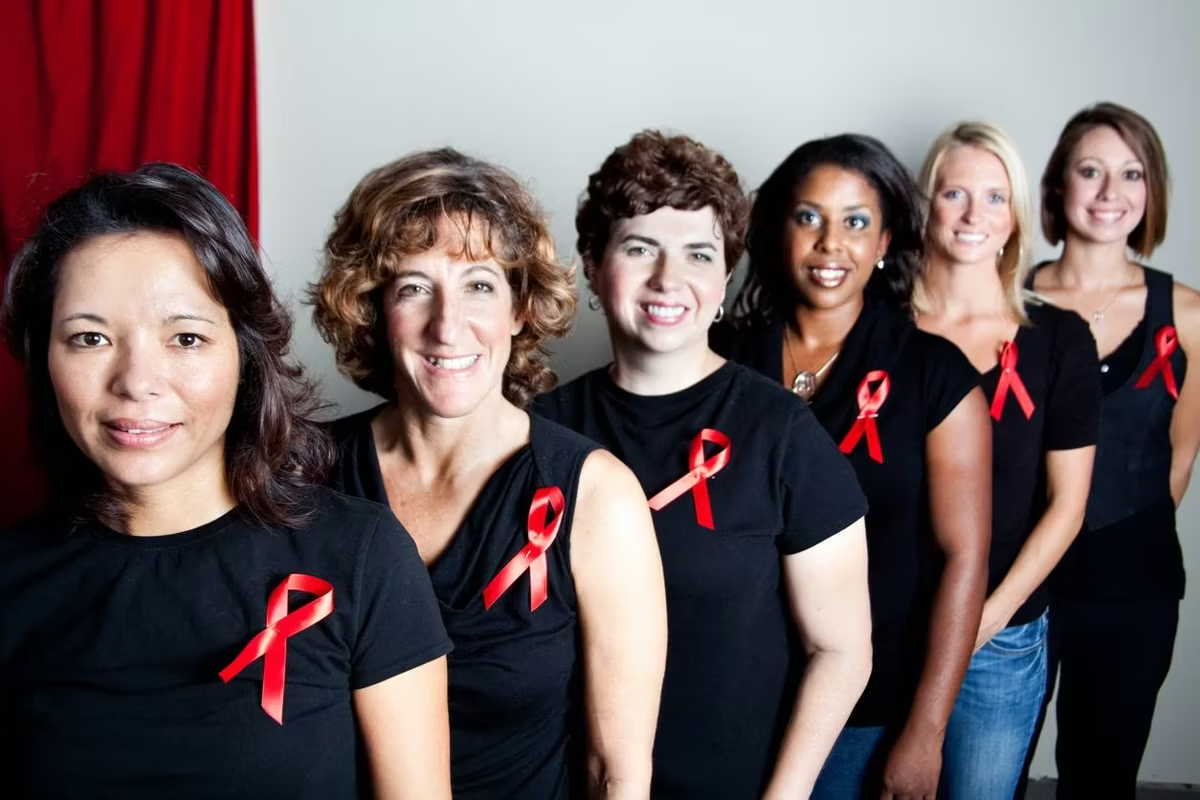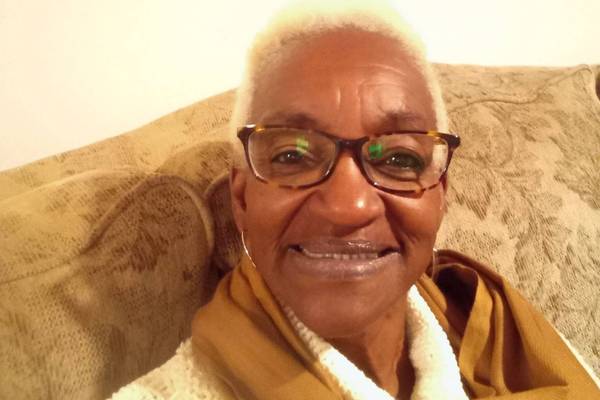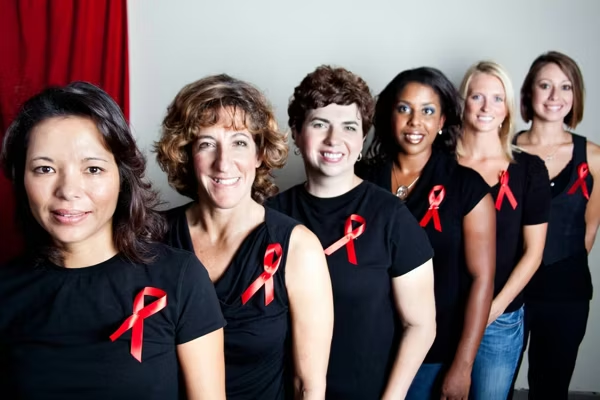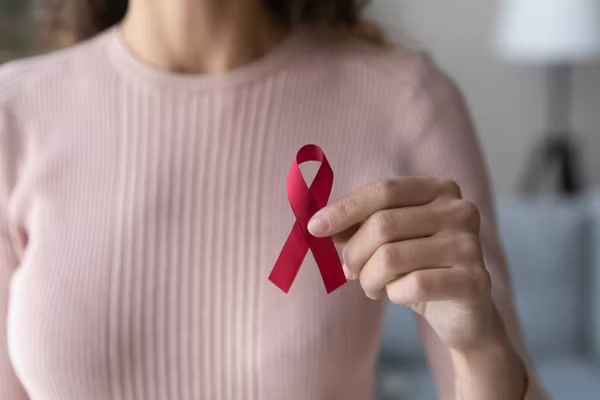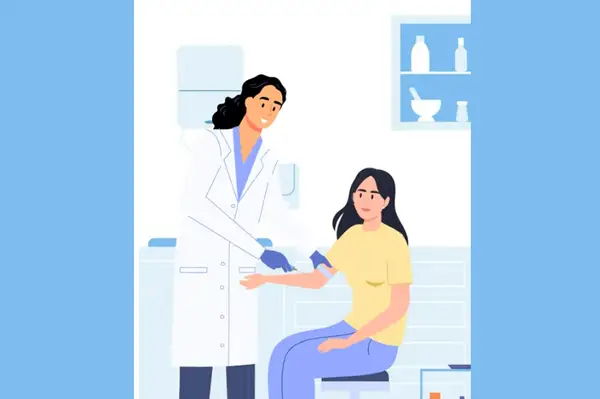December 1, 2025, is World AIDS Day.
Thanks to a treatment called antiretroviral therapy (ART), people assigned female at birth (AFAB) and women with HIV are now living (and thriving!) into old age. More than half of all people with HIV in the United States are 50 and over. But HIV is linked to certain health problems that can affect women living with the disease. Here are some of the most common ones.
Gynecological health issues and HIV
Gynecological health issues are those that affect the female reproductive system. For women and people AFAB living with HIV, these may include:
- Sexually transmitted infections (STIs) like herpes, pelvic inflammatory disease (PID) and syphilis
- Vulvovaginal candidiasis, otherwise known as a vaginal yeast infection
- Bacterial vaginosis (BV), another infection that affects the vagina
People with HIV are more vulnerable to these issues because HIV weakens the immune system, making it harder for the body to fight off infection.
HIV can also affect the menstrual cycle and can cause:
- Irregular periods
- Missed periods
- Spotting (light bleeding between periods)
- Bad premenstrual syndrome (PMS)
Higher risk of cervical cancer
Cervical cancer is cancer that starts in the cervix, the lower part of the uterus that connects with the vagina. It is usually caused by infection with certain types of human papillomavirus (HPV).
HPV infection is so common that most people who aren’t vaccinated against it will be infected at some point without ever knowing they have it. But the immune systems of women with HIV may have a harder time getting rid of HPV, which puts them at higher risk of developing cervical cancer.
Read: Fast Facts: Here’s What You Need to Know About Cervical Cancer and HPV >>
Higher risk of heart problems
Heart disease is the number one killer of women in the United States, and HIV-related heart disease is a leading cause of death for women with HIV. The risk of having a heart attack is particularly high for women with HIV, who are three times more likely to have a heart attack than women without HIV.
Scientists think several factors may contribute, including chronic inflammation and immune activation from HIV, the effects of some HIV medicines on cholesterol and blood sugar, general risk factors (like high blood pressure and smoking), and, for some women, hormonal changes around menopause.
Side effects and interactions of HIV medicines
While ART works well to keep HIV under control, it also comes with side effects, which vary depending on the medicine. Relatively minor side effects can include:
- Upset stomach
- Headaches
- Dry mouth
- Sleep problems
- Mood changes
- Tiredness
- Dizziness
- Fatigue
Medicines used to treat HIV are also linked to more serious side effects, including depression, high cholesterol, long QT syndrome (a life-threatening type of abnormal heart rhythm), an increased risk of pancreatitis (sudden inflammation of the pancreas) and osteoporosis.
Another concern for women on ART is drug interactions, meaning the way these treatments affect any other medicines they may be taking and vice versa.
ART can keep other medicines you take from working as well, or cause your body to absorb too much of the medicine. And some medicines (like proton pump inhibitors, or PPIs, commonly taken for heartburn) can prevent your body from absorbing enough ART.
It’s important for women with HIV to talk to a healthcare provider (HCP) or pharmacist before starting any new medicine — even if it’s a supplement or sold over the counter — so they can check for possible drug interactions.
Menopause and other age-related issues
As people AFAB and women with HIV approach menopause, they might have a harder time with the transition than those without the disease. They may go through menopause earlier, and their symptoms (like hot flashes and night sweats) may be worse.
Menopause isn’t the only health change linked with aging that can happen sooner than average for women with HIV. One study found that common age-related conditions like kidney disease and diabetes occurred 16 years earlier in people with HIV than those without it.
Experts don’t know exactly why people with HIV are hit harder by these conditions, but they think inflammation caused by the virus may be a big factor.
Living your best life with HIV
Thanks to modern medicine, people with HIV are living longer, fuller lives. And while the disease does present people AFAB and women with some unique challenges, there are resources available that can help you handle them.
Organizations like Older Women Embracing Life (OWEL) offer support for women living with HIV, as well as their families and caregivers. You can also talk to your HCP about what you can do to stay as healthy as possible into your golden years.
Resources
This educational resource was created with support from Merck.
- Clinically Speaking: Questions and Answers About Your HIV Treatment ›
- FAQs About HIV and Pregnancy ›
- How HIV Affects Menopause and Menopause Affects HIV ›
- HIV, Aging and Whole Person Care ›
- Women Can Get HIV, Too. That’s Why They Need to Get Tested for HIV. ›

